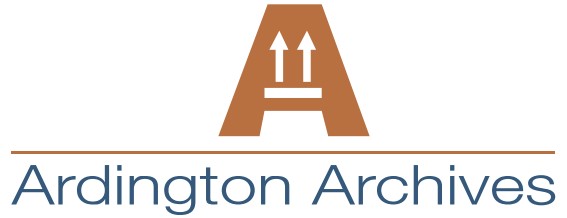We understand that efficient and reliable access and retrieval of your documents are key
Paper documents are integral to both the legal and financial communities. However, due to the vast quantity of records required in this field, finding time to properly record and store all relevant documentation can prove difficult. Ardington Archives support our legal and financial clients with boxing and cataloguing of records, through digital and physical file retrievals, to managing record reviews and destructions. Furthermore, we have longstanding expertise in the management of the retention dates of legal and financial files as well as the digital conversion of business-critical documentation.
To increase efficiency, legal and financial clients are able to request the retrieval of boxes or files via our online system or simply via email. Our network of transport vehicles allows next day delivery of the required boxes or files, whilst confidentiality remains key at all times. In order to fully protect the identity of a legal or financial client we choose to utilise secure, unmarked vans to carry out our collection and retrieval processes.

By collating your important documents in our Secure Vault environment, Ardington Archives provide a cost effective, secure, long term storage option for legal files such as Wills, Conveyances, and Deeds.
Key benefits to the Legal and Financial Sectors
- Secure offsite storage of important documents
- Quick and easy retrieval service of crucial information
- Assistance with cataloguing and boxing of records
- Fully confidential service
Do you know how long you need to store certain types of legal and financial information?
Tax Records: HM Revenue & Customs (HMRC) recommends keeping tax records for at least 22 months after the end of the tax year they relate to.
Business Records: The Companies Act 2006 requires companies to retain accounting records for at least six years.
Personal Financial Records: It’s generally recommended to keep important personal financial documents, such as bank statements, for at least six years.
Legal Documents: Legal documents, such as contracts and agreements, should be kept for a minimum of six years after the completion of the transaction or event they relate to.
Property Documents: Documents related to the purchase or sale of property, including deeds and mortgage documents, should be kept indefinitely.

We offer unique, customised document scanning and storage solutions.
We work closely with our clients to ensure we deliver a scanning and storage solution to fit their needs. Have a look at some of our other services.
Ardington Archives currently has a total document storage capacity of over 100,000 boxes across three archive stores, together with our in-house argonite pods and secure vaults. Our facilities are modern and purpose-built for storage. In addition, we have the option to expand our secure archive environments to increase total capacity.
At Ardington Archives we understand that fast and efficient document retrieval is vital for the management of any business. Document retrieval can be requested via phone, email or through our secure online portal service, and if requested by 12 noon, will be returned the next working day, anywhere in the UK. Requested documents are returned either physically or via electronic format, with both options ensuring a secure and confidential delivery.
At Ardington Archives, we provide a comprehensive range of document scanning and digital conversion services using state-of-the-art equipment. We can advise on the best mix of scanning and hardcopy storage to meet your specific needs.
As part of our document storage service, Ardington Archives works with clients to determine destruction dates for archived documents and files. Confidential destruction is carried out by twice shredding the documents, before they are pulped and recycled into toilet tissue. We additionally offer destruction of associated media such as PC hard drives, meeting BSI standards in both Environmental and Information Management.
Ardington Archives has a range of custom designed storage boxes made from high content recycled board. Designed with a double thickness skin to ensure strength, rigidity and a longer life than most other storage boxes, all Ardington Archives boxes are PH neutral to maintain the quality and integrity of the documents stored inside, meeting BS 4971 standards. All boxes are supplied flatpacked for ease of storage and transportation.
In our rapidly-evolving digital era, preserving our cultural and personal heritage has taken a revolutionary turn through heritage scanning. This transformative process involves digitising redords, documents and images, extending their life without causing any damage to the original items.
Get In touch
We would love to hear from you. Please complete the form and we will be in touch shortly. Alternatively, give us a call to discuss your scanning and storage needs.
01367 718710
FAQ
How does Ardington Archives ensure the quality of scanned documents?
Quality is paramount at Ardington Archives. Before proceeding with scanning, we carry out an initial run to ensure we understand your requirements and that you are satisfied with the results. This quality assurance step ensures that the final digital documents meet your expectations and standards.
What types of documents can Ardington Archives scan and digitise?
At Ardington Archives, we offer comprehensive document scanning and digital conversion services for various types of documents, including bulk documents, lab books, plan drawings, microfilm, books, delicate materials, audio and more. We have the capability to convert documents and media in a wide range of formats.
How is the cost of your scanning service determined?
Our scanning costs are calculated based on a modular approach, and include all elements of the scanning process:
- Document preparation (including removal of document fasteners such as staples and clips)
- Scanning of documents
- Optical Character Recognition (OCR) where possible
- Image cropping, de-skewing, image enhancement, and file size optimisation
- Basic indexing (large indexing requirements may incur additional costs)
